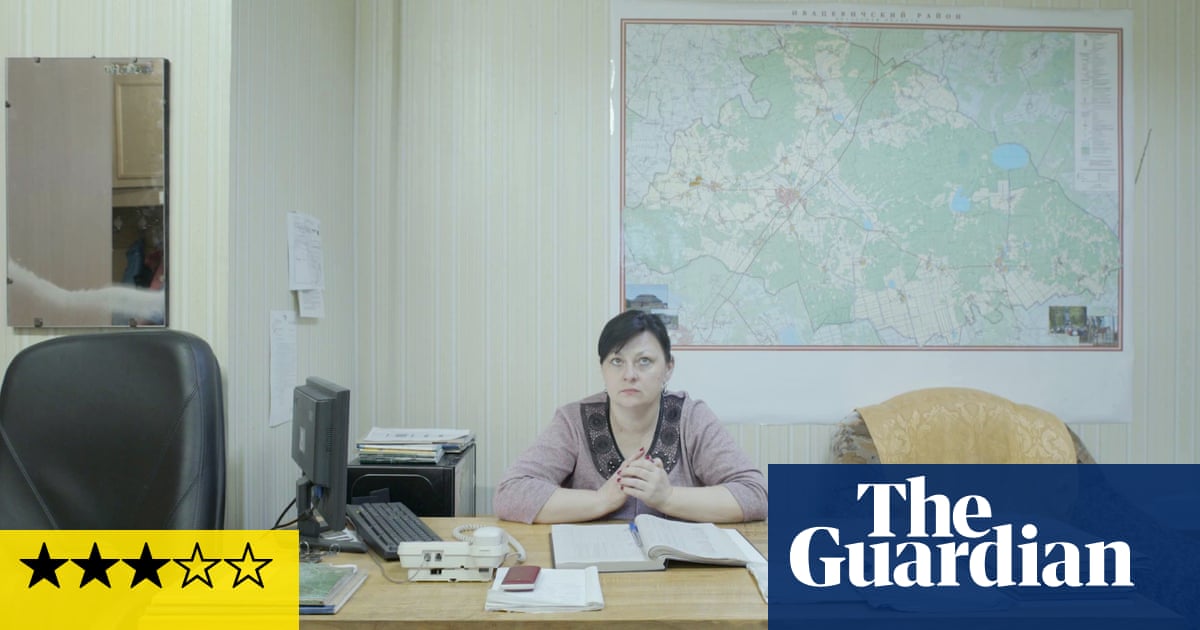
his bittersweet tale of the unearthing of the Sutton Hoo treasures on the eve of the second world war has gentle charm to spare. Adapted by screenwriter Moira Buffini from the historical novel by John Preston, it’s a melancholy whimsy about common purpose, new friendship and the persistence of the past, bogged down occasionally by a somewhat superfluous romantic subplot but buoyed up by Mike Eley’s lush cinematography, which beautifully captures the lonely beauty of the open English landscapes.
Ralph Fiennes is Basil Brown, the self-taught, working-class archaeologist who wears his immense learning lightly, and who rides his panniered bike under imposing skies, now darkening with the impending threat of war with Germany. Basil’s demeanour is quiet and unassuming, but there’s a steely defiance beneath the surface deference, an awareness of his own worth, both professionally and financially.
By contrast, Carey Mulligan’s Edith Pretty is a wealthy widow whose extensive land includes a series of imposing earth mounds, which she enlists Brown to excavate. “My interest in archaeology began like yours,” Edith tells the initially sceptical Basil, “when I was scarcely old enough to hold a trowel.” So begins an unlikely friendship between two very different people, both of whom believe that “it speaks, the past”.
In a film defined by understatement, it’s the little details that matter. There’s an admirable eloquence to Fiennes’s portrayal of Brown, from the studied precision of his very specific Suffolk accent to the way his gaze alters as he looks from the sod to the stars, finding equal time-travelling wonder in both worlds. Plaudits, too, to Monica Dolan, who makes the most of a supporting role as Basil’s wife, May, breathing years of history into a few fairly short exchanges, telling us more about their life together in a fleeting glance or a tentative touch than any amount of expository dialogue.
Meanwhile, the redoubtable Ken Stott takes a broadly written caricature of academic archaeologist Charles Phillips and keeps it just the right side of credible, personifying the snobby establishment who march in to take credit for Basil’s discoveries, looking down their noses at Brown whom they consider to be little more than a labourer – an earth mover.
In a recent interview, Fiennes described Buffini’s script as “a story of kindred spirits” that is “not clouded by love or romance”. That’s an accurate description, despite a distant echo of the repressed longings that underpinned Merchant Ivory’s adaptation of Kazuo Ishiguro’s The Remains of the Day. A shame, then, that The Dig gets sidetracked by a subplot that sees Lily James’s real-life archaeologist Peggy Piggott falling for Johnny Flynn’s fictional airman Rory Lomax, a distraction that feels as though it has been foregrounded simply to broaden the film’s appeal to younger audiences, rather than as an organic addendum to the central story.
Altogether more integral is Basil’s increasingly paternal relationship with Edith’s son, Robert (Archie Barnes), the young boy finding solace from the distressing realisation of his mother’s ailing health in the company of someone who has a touch of eternity about him. Through Basil, Robert sees a world in which the past is never lost, a theme that chimes with the undercurrents of mortality and living legacy playing out in the present.
Director Simon Stone may have learned his craft in the theatre, but his second feature (after 2015’s feted Australian drama The Daughter) has a rich cinematic glow that reminded me of Jessica Swale’s lovely Summerland, another affectionately nostalgic Brit pic with its feet on the ground and its head in the heavens.












